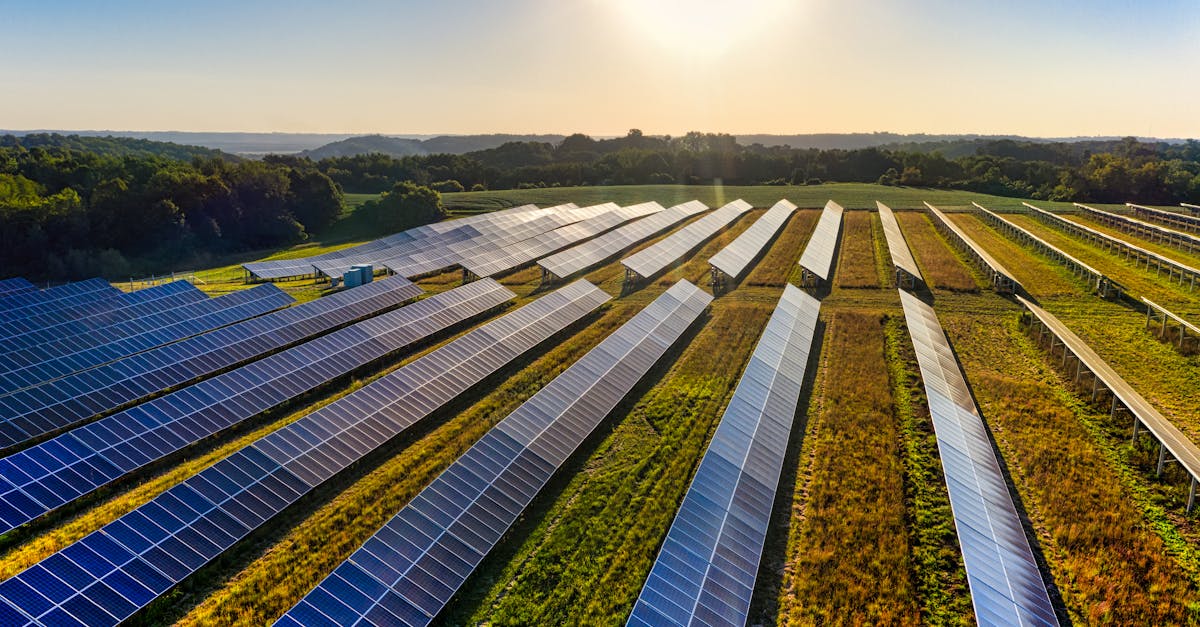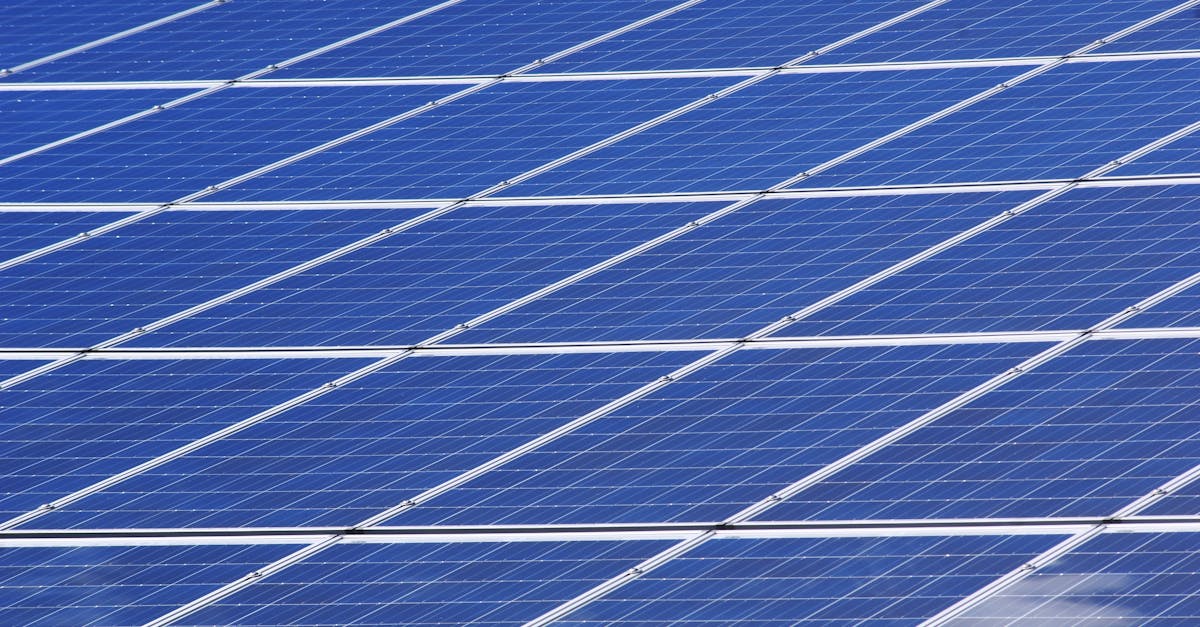Powering Tomorrow: Amazon’s Green Energy Revolution

Harnessing Green Energy’s Potential: Amazon’s Hydrogen Generators and Solar Power Solutions
Embark on a journey into the future of green energy, where Amazon takes center stage. Discover the transformative power of hydrogen powered generators and the boundless possibilities of solar power solutions. Whether you’re a homeowner seeking sustainable energy alternatives or a business exploring eco-friendly options, Amazon has got you covered. Unveil the latest innovations, compare technologies, and empower yourself with the knowledge to make informed decisions towards a cleaner, more sustainable future.
Thank you for reading this post, don't forget to subscribe!
Embracing green energy is not just a responsible choice; it’s an investment in a promising future. Hydrogen generators and solar power systems offer a myriad of benefits, from reduced emissions to increased efficiency. With Amazon’s extensive selection of products, you can find the perfect solution tailored to your specific needs and budget.
1. Unveiling the Power of Hydrogen: Hydrogen Powered Generators
Unveiling the Power of Hydrogen: Hydrogen Powered Generators
Step into the realm of groundbreaking technology with hydrogen-powered generators, offering a paradigm shift in clean and reliable energy. These generators harness the power of hydrogen, an abundant and renewable resource, to produce electricity without any harmful emissions. Unlike traditional fossil fuel generators, hydrogen generators emit only water vapor, making them an environmentally friendly alternative.
Hydrogen generators are not just eco-friendly; they also boast impressive performance capabilities. They operate with remarkable efficiency, converting a high percentage of hydrogen fuel into electricity. This efficiency translates into cost savings on energy bills, making these generators an attractive option for both residential and commercial applications. Additionally, hydrogen generators are remarkably quiet during operation, providing a peaceful environment without the噪音pollution associated with traditional generators.
Embracing hydrogen-powered generators is a step towards a cleaner and more sustainable energy future. Whether you’re looking to power your home during grid outages, provide backup electricity for your business, or reduce your carbon footprint, hydrogen generators offer a viable and eco-conscious solution.
Benefits of Hydrogen Generators
Benefits of Hydrogen Generators
Hydrogen-powered generators offer a myriad of advantages that make them an attractive choice for various applications. Here are some key benefits to consider:
-
Zero Emissions: Hydrogen generators produce electricity through a chemical reaction between hydrogen and oxygen, resulting in only water vapor as a byproduct. This makes them an environmentally friendly alternative to traditional fossil fuel generators, which emit harmful pollutants such as carbon dioxide, nitrogen oxides, and particulate matter.
-
Quiet Operation: Unlike traditional generators that can be noisy and disruptive, hydrogen generators operate with a remarkably low noise level. This makes them ideal for use in residential areas, hospitals, and other noise-sensitive environments.
-
Customizable Power Output: Hydrogen generators can be designed to provide a range of power outputs, making them suitable for a variety of applications. Whether you need to power a small home appliance or a large industrial facility, there’s a hydrogen generator that can meet your specific requirements.
In addition to these benefits, hydrogen generators are also highly efficient, reliable, and durable. They require minimal maintenance and can operate in a wide range of environmental conditions. As the technology continues to advance, hydrogen generators are becoming increasingly affordable, making them a more accessible option for consumers and businesses alike.
Leading Hydrogen Generator Products on Amazon
Leading Hydrogen Generator Products on Amazon
Amazon offers a diverse selection of hydrogen generators from reputable brands, each with unique features and designs. Here are a few of the top-rated products to consider:
-
AXH2O Hydrogen Generator: This generator is known for its compact size and portability, making it a great choice for camping, RVing, or as a backup power source for small appliances. It produces up to 6 liters of hydrogen per hour and features an integrated humidifier to prevent dryness.
-
H2Blu Hydrogen Generator: With its sleek design and advanced technology, the H2Blu generator is a popular choice for both residential and commercial use. It offers high efficiency and can produce up to 12 liters of hydrogen per hour. Additionally, it comes with a built-in water purification system for added convenience.
-
Horizon Hydrogen Generator: The Horizon generator is a heavy-duty option designed for industrial applications. It boasts a high power output of up to 24 liters of hydrogen per hour and is suitable for powering larger devices and equipment. It is also equipped with an advanced control system for precise operation.
These are just a few examples of the leading hydrogen generator products available on Amazon. When selecting a generator, it’s important to consider factors such as your power requirements, budget, and desired features. By choosing a reputable brand with a proven track record, you can ensure you’re getting a high-quality product that will meet your needs.
2. Harnessing the Sun’s Energy: Solar Power Solutions

Harnessing the Sun’s Energy: Solar Power Solutions
Embrace the limitless potential of solar energy with comprehensive solar power solutions available on Amazon. Solar power offers a clean, renewable, and cost-effective way to generate electricity for your home or business. Amazon provides a wide range of solar panels, inverters, and accessories to help you design and install a customized solar power system that meets your specific needs.
Solar panels are the heart of any solar power system. Amazon offers a variety of solar panels from reputable brands, including monocrystalline, polycrystalline, and thin-film panels. Monocrystalline panels are the most efficient and durable, while polycrystalline panels offer a good balance of efficiency and cost. Thin-film panels are lightweight and flexible, making them ideal for certain applications.
Inverters are essential components that convert the DC electricity generated by solar panels into AC electricity that can be used by appliances and devices. Amazon offers a range of inverters, including grid-tied inverters, off-grid inverters, and hybrid inverters. Grid-tied inverters are connected to the electrical grid and sell excess solar power back to the utility. Off-grid inverters are used in standalone systems and provide backup power during grid outages. Hybrid inverters combine the features of both grid-tied and off-grid inverters.
By choosing solar power, you can reduce your reliance on fossil fuels, lower your energy bills, and contribute to a cleaner environment. Amazon makes it easy to harness the power of the sun with its comprehensive selection of solar power solutions.
Advantages of Solar Power Systems
Advantages of Solar Power Systems
Installing a solar power system offers numerous advantages for homeowners and businesses alike:
-
Reduced Energy Costs: Solar panels generate free electricity from the sun, reducing your reliance on the grid and potentially eliminating your electricity bills. Over time, the savings on energy costs can be substantial.
-
Increased Property Value: Homes and businesses with solar power systems are often more valuable than those without. This is because solar panels are seen as a desirable feature that can increase the property’s curb appeal and energy efficiency.
-
Environmental Sustainability: Solar power is a clean and renewable energy source that does not produce greenhouse gases or other harmful emissions. By choosing solar, you can reduce your carbon footprint and contribute to a cleaner environment.
In addition to these benefits, solar power systems are also low-maintenance and have a long lifespan of 25 years or more. With the increasing affordability and accessibility of solar panels, it’s no wonder that more and more people are making the switch to solar power.
Recommended Solar Power Products on Amazon
Recommended Solar Power Products on Amazon
Amazon offers a wide selection of high-efficiency and reliable solar power products to meet your needs. Here are a few recommended products to consider:
-
Solar Panels: When choosing solar panels, consider factors such as efficiency, durability, and warranty. Some top-rated solar panels available on Amazon include the SunPower Maxeon 3, LG NeON R, and REC Alpha Pure. These panels offer high conversion efficiency, excellent temperature coefficients, and long warranties.
-
Inverters: Inverters are responsible for converting DC electricity from solar panels into AC electricity that can be used by appliances and devices. Look for inverters with high efficiency, low noise levels, and advanced features such as monitoring and remote control. Recommended inverters on Amazon include the SolarEdge HD-Wave, Fronius Symo, and Outback Power Radian.
-
Accessories: In addition to solar panels and inverters, you’ll need additional components to complete your solar power system. Amazon offers a range of accessories, including mounting systems, solar batteries, and monitoring devices. Choose high-quality accessories that are compatible with your solar panels and inverter.
By selecting the right solar power products from Amazon, you can create a customized system that will provide you with clean, reliable, and affordable energy for years to come.
3. Comparing Hydrogen Generators and Solar Power Systems
Comparing Hydrogen Generators and Solar Power Systems
When choosing between hydrogen generators and solar power systems, it’s important to consider factors such as cost, efficiency, and environmental impact:
-
Cost: Hydrogen generators can be more expensive to purchase and operate than solar power systems. The cost of hydrogen fuel can vary depending on location and availability. Solar power systems, on the other hand, have lower operating costs since sunlight is free. However, the upfront cost of purchasing and installing a solar power system can be significant.
-
Efficiency: Solar power systems are generally more efficient than hydrogen generators. Solar panels can convert up to 25% of sunlight into electricity, while hydrogen generators typically have an efficiency of around 40-60%. This means that solar power systems can produce more electricity from the same amount of energy input.
-
Environmental Impact: Hydrogen generators produce only water vapor as a byproduct, making them a clean energy source. However, the production of hydrogen fuel can involve the use of fossil fuels, which can contribute to greenhouse gas emissions. Solar power systems, on the other hand, are completely emissions-free.
Ultimately, the best choice for you will depend on your specific needs and circumstances. If you need a portable and reliable power source, a hydrogen generator may be a good option. If you’re looking for a more efficient and sustainable solution, a solar power system is a better choice.
Cost Considerations
Cost Considerations
When comparing hydrogen generators and solar power systems, it’s important to consider both the upfront and ongoing costs:
-
Upfront Costs: Hydrogen generators are typically more expensive to purchase than solar power systems. The cost of a hydrogen generator can range from a few hundred dollars to several thousand dollars, depending on the size and features. Solar power systems, on the other hand, can cost several thousand dollars or more, depending on the size and complexity of the system.
-
Ongoing Costs: The ongoing costs of hydrogen generators include the cost of hydrogen fuel and maintenance. The cost of hydrogen fuel can vary depending on location and availability. Maintenance costs are typically minimal. Solar power systems have lower ongoing costs since sunlight is free. However, there may be occasional maintenance costs, such as cleaning the solar panels or replacing the inverter.
It’s also important to consider the potential savings on energy bills when evaluating the cost of hydrogen generators and solar power systems. Solar power systems can generate free electricity from the sun, which can lead to significant savings over time. Hydrogen generators can also save money on energy bills, but the savings will depend on the cost of hydrogen fuel.
Ultimately, the best way to determine which option is more cost-effective for you is to compare the upfront and ongoing costs over the expected lifespan of the system.
Energy Efficiency
Energy Efficiency
The efficiency of a hydrogen generator or solar power system is determined by how well it converts energy from one form to another. In the case of hydrogen generators, the efficiency is determined by the efficiency of the electrolysis process, which converts electricity into hydrogen. In the case of solar power systems, the efficiency is determined by the efficiency of the solar panels, which convert sunlight into electricity.
-
Hydrogen Generators: The efficiency of hydrogen generators can vary depending on the type of electrolyzer used. Alkaline electrolyzers are typically the most efficient, with an efficiency of around 70-80%. Proton exchange membrane (PEM) electrolyzers are also efficient, with an efficiency of around 60-70%. Solid oxide electrolyzers (SOEs) are less efficient, with an efficiency of around 40-50%.
-
Solar Power Systems: The efficiency of solar panels can vary depending on the type of solar cell used. Monocrystalline solar panels are the most efficient, with an efficiency of around 20-25%. Polycrystalline solar panels are less efficient, with an efficiency of around 15-20%. Thin-film solar panels are the least efficient, with an efficiency of around 10-15%.
In addition to the efficiency of the energy conversion process, it’s also important to consider the efficiency of the energy storage system. Hydrogen can be stored in compressed gas tanks or liquid hydrogen tanks. The efficiency of hydrogen storage can vary depending on the storage method. Solar power systems can store energy in batteries. The efficiency of battery storage can vary depending on the type of battery used.
Overall, solar power systems are generally more efficient than hydrogen generators. However, the efficiency of each technology can vary depending on the specific components used.
Environmental Impact
Environmental Impact
The environmental impact of hydrogen generators and solar power systems should be considered throughout their entire lifecycle, from manufacturing to operation to disposal:
-
Manufacturing: The manufacturing of hydrogen generators and solar panels requires the use of raw materials and energy. The environmental impact of manufacturing will vary depending on the specific materials and processes used.
-
Operation: Hydrogen generators produce only water vapor as a byproduct, making them a clean energy source. However, the production of hydrogen fuel can involve the use of fossil fuels, which can contribute to greenhouse gas emissions. Solar power systems, on the other hand, are completely emissions-free during operation.
-
Disposal: Hydrogen generators and solar panels can be recycled at the end of their useful life. However, the recycling process can be complex and energy-intensive. It’s important to dispose of these systems properly to minimize their environmental impact.
Overall, solar power systems have a lower environmental impact than hydrogen generators. However, the environmental impact of each technology can vary depending on the specific components and processes used.
4. Choosing the Right Solution for Your Needs

Choosing the Right Solution for Your Needs
Choosing the right green energy solution for your specific needs requires careful consideration of factors such as budget, energy consumption, and environmental goals:
-
Budget: Hydrogen generators and solar power systems can vary in price depending on the size and features. It’s important to set a budget before you start shopping so that you can narrow down your options.
-
Energy Consumption: Consider your energy consumption needs when choosing a green energy solution. If you need a portable and reliable power source, a hydrogen generator may be a good option. If you’re looking for a more efficient and sustainable solution, a solar power system is a better choice.
-
Environmental Goals: If you’re looking to reduce your carbon footprint, a solar power system is the best choice. Solar power systems are completely emissions-free during operation.
Once you’ve considered these factors, you can start to compare the different hydrogen generators and solar power systems available on the market. Read reviews, compare prices, and talk to experts to find the best solution for your needs.
Factors to Consider When Choosing
Factors to Consider When Choosing
When selecting a hydrogen generator or solar power system, it’s important to evaluate the following key factors:
-
Power Output: The power output of a hydrogen generator or solar power system is measured in watts. The power output you need will depend on your energy consumption needs. Consider the appliances and devices you’ll be powering and choose a system that can meet your requirements.
-
Efficiency: The efficiency of a hydrogen generator or solar power system is a measure of how well it converts energy from one form to another. A more efficient system will produce more power for the same amount of energy input. Efficiency is especially important for solar power systems, as it determines how much electricity you can generate from sunlight.
-
Portability: If you need a portable power source, a hydrogen generator is a good option. Hydrogen generators are lightweight and easy to transport. Solar power systems, on the other hand, are not as portable since they require solar panels to be installed in a fixed location.
-
Fuel Source: Hydrogen generators require a source of hydrogen fuel. The availability and cost of hydrogen fuel will vary depending on your location. Solar power systems, on the other hand, do not require any fuel since they generate electricity from sunlight.
-
Environmental Impact: If you’re looking to reduce your carbon footprint, a solar power system is the best choice. Solar power systems are completely emissions-free during operation.
Case Studies and Success Stories
Case Studies and Success Stories
Real-world examples of successful hydrogen generator and solar power system implementations demonstrate the benefits of these technologies:
-
Hydrogen Generators: Hydrogen generators are being used to power a variety of applications, including backup power for critical infrastructure, remote power generation, and transportation. For example, the city of Fukushima, Japan, has installed hydrogen generators to provide backup power for its water treatment plant. The hydrogen generators are fueled by hydrogen produced from renewable sources, making the system completely emissions-free.
-
Solar Power Systems: Solar power systems are being used to generate electricity for homes, businesses, and communities around the world. For example, the Ivanpah Solar Electric Generating System in California is one of the largest solar power plants in the world. The plant generates enough electricity to power over 140,000 homes.
These case studies and success stories demonstrate the potential of hydrogen generators and solar power systems to provide clean, reliable, and affordable energy.
5. Latest Innovations in Green Energy
Latest Innovations in Green Energy
The field of green energy is constantly evolving, with new and innovative technologies emerging all the time. Some of the latest advancements to watch for include:
-
Perovskite Solar Cells: Perovskite solar cells are a new type of solar cell that has the potential to be more efficient and less expensive than traditional silicon solar cells. Perovskite solar cells are still in the early stages of development, but they have the potential to revolutionize the solar industry.
-
Solid-State Batteries: Solid-state batteries are a new type of battery that is safer, more stable, and more energy-dense than traditional lithium-ion batteries. Solid-state batteries are still in the early stages of development, but they have the potential to power electric vehicles and other devices for longer periods of time.
-
Green Hydrogen: Green hydrogen is hydrogen that is produced from renewable sources, such as solar and wind power. Green hydrogen can be used to power fuel cell vehicles, generate electricity, and heat homes and businesses. Green hydrogen is a promising clean energy source, but it is still relatively expensive to produce.
These are just a few of the latest innovations in green energy. As these technologies continue to develop, they have the potential to make a significant contribution to the fight against climate change.
Research and Development
Research and Development
Ongoing research and development initiatives are pushing the boundaries of green energy technology, with a focus on hydrogen and solar technologies:
-
Hydrogen Fuel Cells: Researchers are working to develop more efficient and durable hydrogen fuel cells. Hydrogen fuel cells convert hydrogen and oxygen into electricity, with only water as a byproduct. Fuel cells have the potential to power a variety of applications, including vehicles, backup power systems, and portable devices.
-
Solar Energy Storage: Researchers are developing new ways to store solar energy so that it can be used when the sun is not shining. Solar energy storage technologies include batteries, thermal energy storage, and pumped hydro storage. These technologies will help to make solar energy more reliable and dispatchable.
-
Perovskite Solar Cells: Perovskite solar cells are a new type of solar cell that has the potential to be more efficient and less expensive than traditional silicon solar cells. Researchers are working to improve the stability and lifespan of perovskite solar cells so that they can be commercialized.
These are just a few of the many research and development initiatives underway in the field of green energy. As these technologies continue to develop, they have the potential to make a significant contribution to the fight against climate change.
Government Incentives and Policies
Government Incentives and Policies
Governments around the world are implementing incentives and policies to support the adoption of green energy solutions. These incentives and policies can vary depending on the country or region, but they often include:
-
Tax Credits and Rebates: Tax credits and rebates can reduce the cost of installing green energy systems, such as solar panels and hydrogen generators. These incentives can make green energy solutions more affordable for homeowners and businesses.
-
Net Metering: Net metering allows homeowners and businesses with solar power systems to sell excess electricity back to the grid at a retail rate. This can help to offset the cost of installing a solar power system and reduce energy bills.
-
Renewable Portfolio Standards: Renewable portfolio standards (RPS) require utilities to generate a certain percentage of their electricity from renewable sources, such as solar and wind power. RPSs help to create a market for renewable energy and encourage utilities to invest in green energy projects.
-
Green Building Codes: Green building codes require new buildings to meet certain energy efficiency and sustainability standards. These codes can help to reduce the energy consumption of new buildings and promote the use of green building materials.
Government incentives and policies are playing a key role in the adoption of green energy solutions. By providing financial incentives and creating supportive policies, governments can help to make green energy more affordable and accessible for everyone.
6. Building a Sustainable Future with Green Energy
Building a Sustainable Future with Green Energy
Green energy has the power to transform our planet and create a more sustainable future for generations to come:
-
Environmental Benefits: Green energy sources, such as solar and wind power, do not produce greenhouse gases or other harmful emissions. By transitioning to green energy, we can reduce air pollution, water pollution, and climate change.
-
Economic Benefits: Green energy can create new jobs and boost economic growth. Investing in green energy technologies can help to create a more sustainable and prosperous future for all.
-
Social Benefits: Green energy can improve public health and well-being. By reducing air pollution, green energy can help to reduce respiratory illnesses and other health problems. Additionally, green energy can provide access to affordable and reliable energy for communities around the world.
Embracing green energy is not just a responsible choice; it’s an investment in a better future for our planet and its people.
Benefits of Green Energy
Benefits of Green Energy
Adopting green energy solutions offers a multitude of benefits for our economy, environment, and society:
-
Economic Benefits: Green energy can create new jobs and boost economic growth. Investing in green energy technologies can lead to the development of new industries and the creation of high-paying jobs. Additionally, green energy can help to reduce energy costs for businesses and consumers, freeing up money that can be spent elsewhere.
-
Environmental Benefits: Green energy sources, such as solar and wind power, do not produce greenhouse gases or other harmful emissions. By transitioning to green energy, we can reduce air pollution, water pollution, and climate change. Green energy can also help to conserve natural resources, such as fossil fuels and water.
-
Social Benefits: Green energy can improve public health and well-being. By reducing air pollution, green energy can help to reduce respiratory illnesses and other health problems. Additionally, green energy can provide access to affordable and reliable energy for communities around the world, improving their quality of life.
Overall, the benefits of green energy are undeniable. By embracing green energy solutions, we can create a cleaner, more prosperous, and more sustainable future for all.
Call to Action
Call to Action
The transition to a green energy future is within our reach, but it will require action from all of us. Here are a few ways you can contribute:
-
Reduce your energy consumption: Simple changes, such as turning off lights when you leave a room and unplugging electronics when you’re not using them, can make a big difference. You can also consider investing in energy-efficient appliances and home improvements.
-
Choose renewable energy sources: If you have the ability, switch to a renewable energy provider or install solar panels or a wind turbine on your property. You can also support businesses that are committed to using renewable energy.
-
Advocate for green energy policies: Contact your elected officials and let them know that you support policies that promote green energy. You can also join organizations that are working to advance green energy solutions.
Together, we can create a cleaner, more sustainable future for our planet and its people.
What are the main advantages of using hydrogen generators and solar power systems?
Hydrogen generators offer quiet operation, customizable power output, and zero emissions. Solar power systems provide clean, renewable energy with low ongoing costs and increased property value.
How do I choose the right green energy solution for my needs?
Consider your budget, energy consumption, environmental goals, power output, efficiency, portability, and fuel source when selecting a hydrogen generator or solar power system.
What are some of the latest innovations in green energy technology?
Perovskite solar cells, solid-state batteries, and green hydrogen are among the promising advancements in green energy technology.
How can I contribute to the transition towards a green energy future?
Reduce your energy consumption, choose renewable energy sources, and advocate for green energy policies.
Quiz
1. True/False: Hydrogen generators produce zero emissions. 2. Which of the following is a benefit of using solar power systems? (a) Low ongoing costs (b) Increased property value (c) Both (a) and (b) 3. What is a key factor to consider when choosing a hydrogen generator or solar power system? (a) Budget (b) Energy consumption (c) Environmental goals (d) All of the above 4. Name one of the latest innovations in green energy technology. (a) Perovskite solar cells (b) Solid-state batteries (c) Green hydrogen (d) All of the above
Answer Key
- True
- (c) Both (a) and (b)
- (d) All of the above
- (d) All of the above




